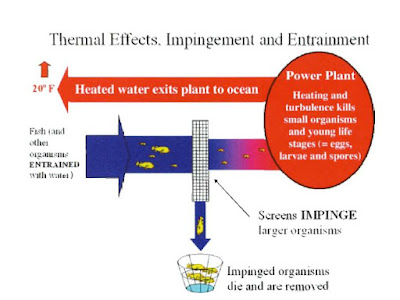
Indian Express, Wed, 29th Sept. Adam Halliday
Even though fishermen from Kutch recently wrote(Read More) to local and state authorities and even to Union Minister for Environment and Forests Jairam Ramesh requesting that back-to-back public hearings for two major industrial projects in Mundra district be cancelled, the public hearings will proceed as scheduled on October 5.
Top officials of the Gujarat Pollution Control Board (GPCB), however, said the two public hearings need not be confined to the one-and-half hours allotted but can extend for “up to 24 hours” if the situation so demands. The public hearings are for the Mundra SEZ (expected to occupy an area roughly the size of Gandhinagar city) and the Kutch Power Generation Limited (a 3300 MW coal-based power plant). Both are projects proposed by the Adani Group. GPCB officials said the hearings are more convenient to be held on the same day since “the same people would be affected and the project proponent is the same”, but that extending the time allotted to each hearing is “not a problem” and is something the board’s local-level officials have already been apprised of.
The fishermen are concerned that the plant’s requirement of 52.50 crore litres of sea water per hour might “cause extensive damage to the marine ecology” and have sent a written complaint to Ramesh. The Adani Group proposes to use the “once-through system” of cooling at its 3300-MW coal-based power plant called Kutch Power Generation Limited, which it proposes to set up at the village. The system has attracted severe criticism in some parts of the world; in May 2010, the state of California in the US adopted a policy that seeks to abolish the use of this system.
The fishermen contend that while the volume of sea water that is to be pumped in to cool the plant (and which would be released at higher temperatures) is massive and there is as yet no study of how it would affect the marine ecology. They point out that the terms of reference and the Draft Environment Impact Assessment (EIA) report submitted by the company, and which has been posted on the GPCB website, does not contain a marine impact study.
The documents referred to as a marine impact study is only a technical study of the infrastructure proposed, they allege. When contacted, both the National Institute if Oceanography (NIO) in Goa and the GPCB confirmed that the points raised by the fishermen in this regard are true.
A top NIO official said the Marine EIA is still being prepared and that it has not been submitted yet. The official said the institute has not been contacted by nor has it contacted the private agency that has drawn up the Draft EIA report, distancing the NIO from any “so-called marine impact study” cited there.
On the other hand, senior GPCB officials agreed what has been submitted by the company is in fact not a marine impact study, but a “technical study on the infrastructure, especially the intake and out-fall channels proposed for the plant”. Asked whether this would mean cancellation of the public hearing, GPCB officials said “conducting a public hearing on the basis of a draft report is not a legal breach”.
However, the final decision on whether the project would eventually be allowed will be taken by the MoEF after examining all relevant documents, including the Marine EIA. “The public hearing will go on, but the MoEF and not the GPCB will finally take the decision after studying all the documents as well as the concerns raised at the public hearing,” a top official said.
http://www.indianexpress.com/news/fishermens-voice-in-kutch-still-unheard-public-hearings-for-adani-projects-to-go-ahead/689842/0
Tags : Union Minister for Environment and Forests, Jairam Ramesh Posted: Wed Sep 29 2010, 07:06 hrs Ahmedabad:Mundra The Mundra port
